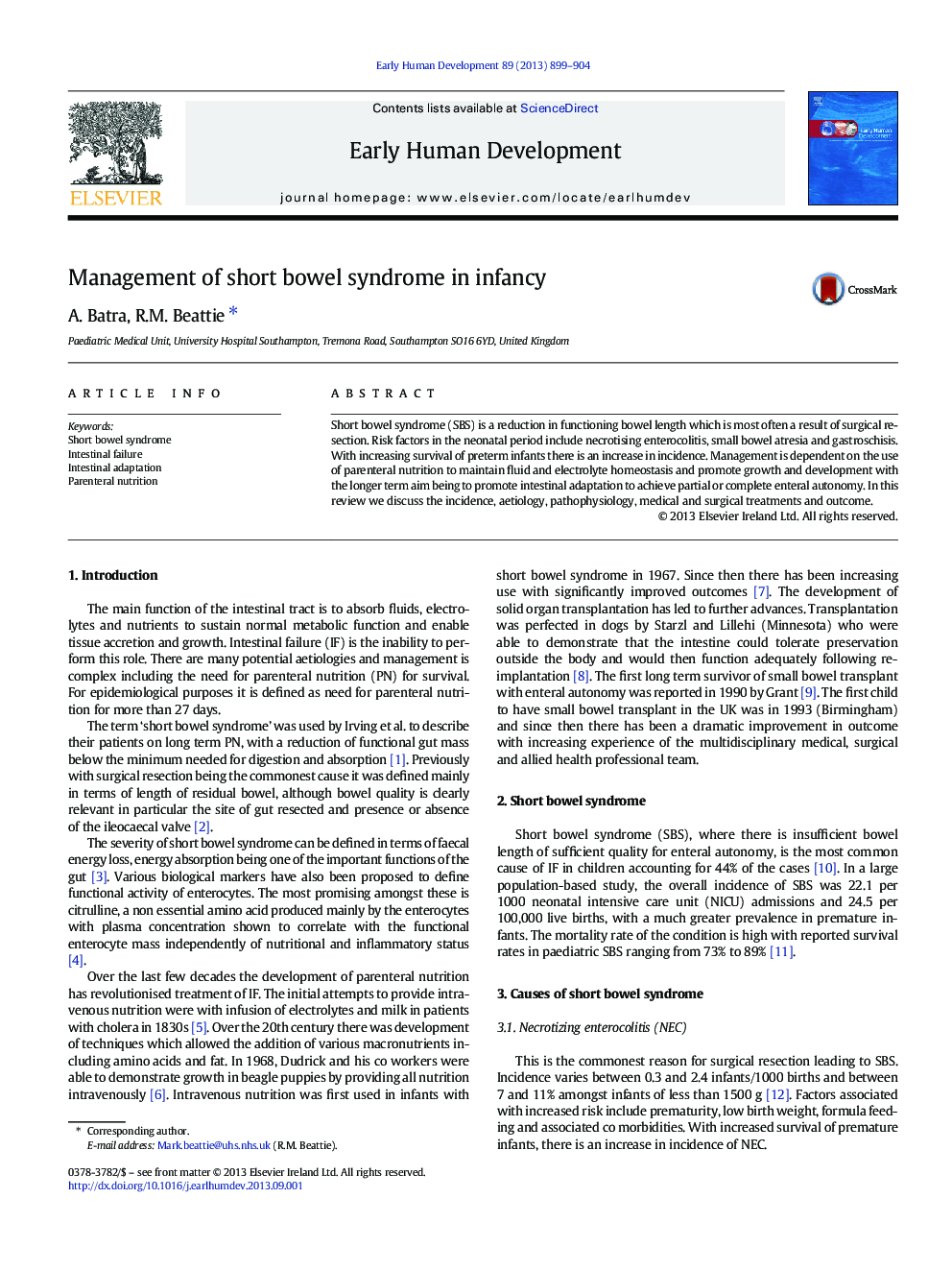| Article ID | Journal | Published Year | Pages | File Type |
|---|---|---|---|---|
| 3916755 | Early Human Development | 2013 | 6 Pages |
Abstract
Short bowel syndrome (SBS) is a reduction in functioning bowel length which is most often a result of surgical resection. Risk factors in the neonatal period include necrotising enterocolitis, small bowel atresia and gastroschisis. With increasing survival of preterm infants there is an increase in incidence. Management is dependent on the use of parenteral nutrition to maintain fluid and electrolyte homeostasis and promote growth and development with the longer term aim being to promote intestinal adaptation to achieve partial or complete enteral autonomy. In this review we discuss the incidence, aetiology, pathophysiology, medical and surgical treatments and outcome.
Related Topics
Health Sciences
Medicine and Dentistry
Obstetrics, Gynecology and Women's Health
Authors
A. Batra, R.M. Beattie,
